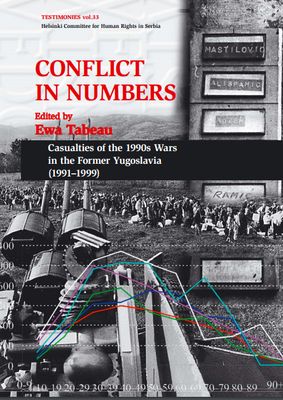
We kindly inform you that, as long as the subject affiliation of our 300.000+ articles is in progress, you might get unsufficient or no results on your third level or second level search. In this case, please broaden your search criteria.


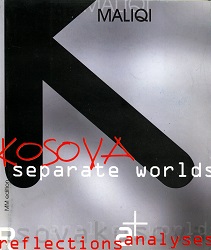
Published in 1998 by Dukagjini Publishing House (Prishtina) // "I had not planned to write this book. It gathers a number of articles that deal with current (1998!) aspects of the problem of Kosova and the Balkan crisis in general. The selection of articles is perhaps not as representative as it could have been; out of hundreds that I have published since the mid- 1980s to today, included in this book are only those that were translated into English. Still, I hope that this selection of articles will be useful to specialists dealing with the Balkan crisis and the Albanian question, as well as to journalists and those interested in learning more about the essence of the processes underway. // For those with a wider interest, I have included two texts that deal with Kosova's art scene in the 1990's as well as an interview containing autobiographical references and information in which internal political and spiritual currents among Kosova Albanians overlap." (Shkelzen Maliqi)
More...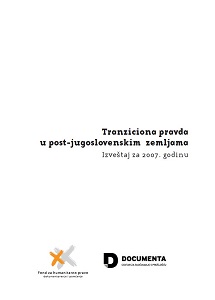
This report is the result of systematic monitoring of the establishment of transitional justice in the countries of the former Yugoslavia, conducted by the human rights organizations Humanitarian Law Center (Belgrade) and Documenta (Zagreb). The disintegration of the Yugoslav federation was marked by three high-intensity armed conflicts: in Croatia (1991-95), Bosnia and Herzegovina (1992-95), and Kosovo (1998-99), in which at least 130,000 people lost their lives, millions they were forced to leave their homes, and hundreds of thousands of houses were destroyed. In addition, shorter armed conflicts, with relatively few casualties, occurred in Slovenia (June-July 1991) and Macedonia (January-November 2001). More than 1,300 Serbs, Roma and Albanians, recognized by the Albanian public as Serb collaborators, were killed after armed conflict and the arrival of international forces in Kosovo between June 12, 1999 and the end of 2000. The fate of some 17,000 missing in the region is still unknown. The transition from a state of armed conflict and state repression to a period of peace and the building of democratic institutions requires these societies to decide on mass human rights violations from the recent past. The set of measures taken by the authorities and civil society to address these violations of rights constitutes a complex of transitional justice, the basic elements of which are fact-finding, trials, reparations, and institutional reform.
More...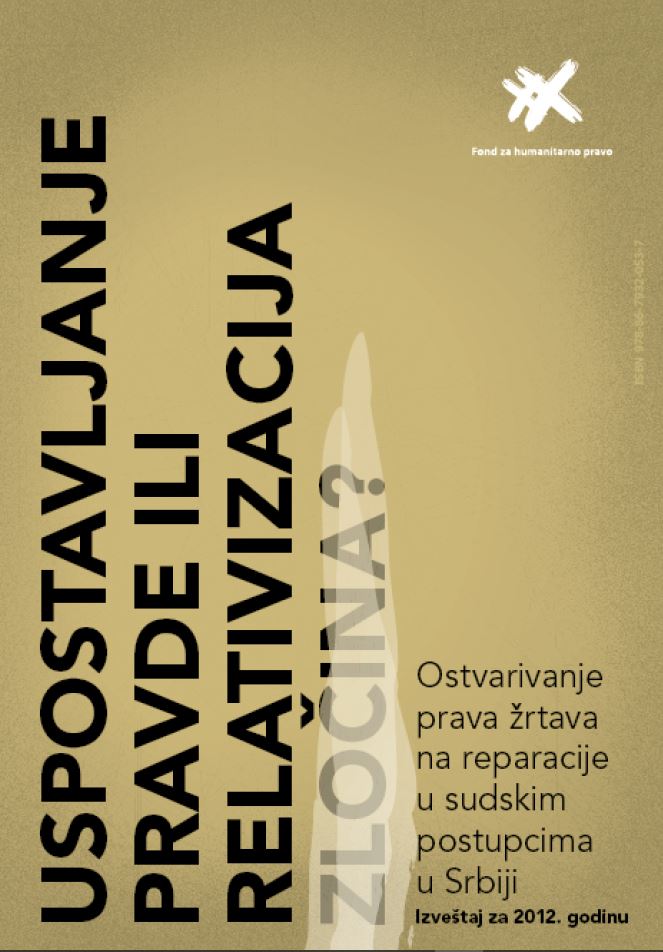
The obligation of the State to provide adequate financial redress to victims of human rights abuses is defined in numerous international conventions on human rights and is derived from the fundamental legal principle of accepting responsibility for harm done. In most societies that have gone through periods of massive human rights violations, the issue of financial reparations for victims is one of the most important elements of establishing the rule of law and providing justice for crimes committed in the past. Identification of victims, creation of programs suitable for the needs of victims, and ways in which those programs are financed are just a few of the important issues considered by post-conflict societies in their overall effort to provide reparations to victims of human rights violations. // This Report offers a review of 15 cases in which HLC represented victims and which resulted in court decisions in 2012. There were a total of 18 judgments, 12 of which were negative and six positive, which awarded a total of RSD 1.76 million to victims of human rights abuses.
More...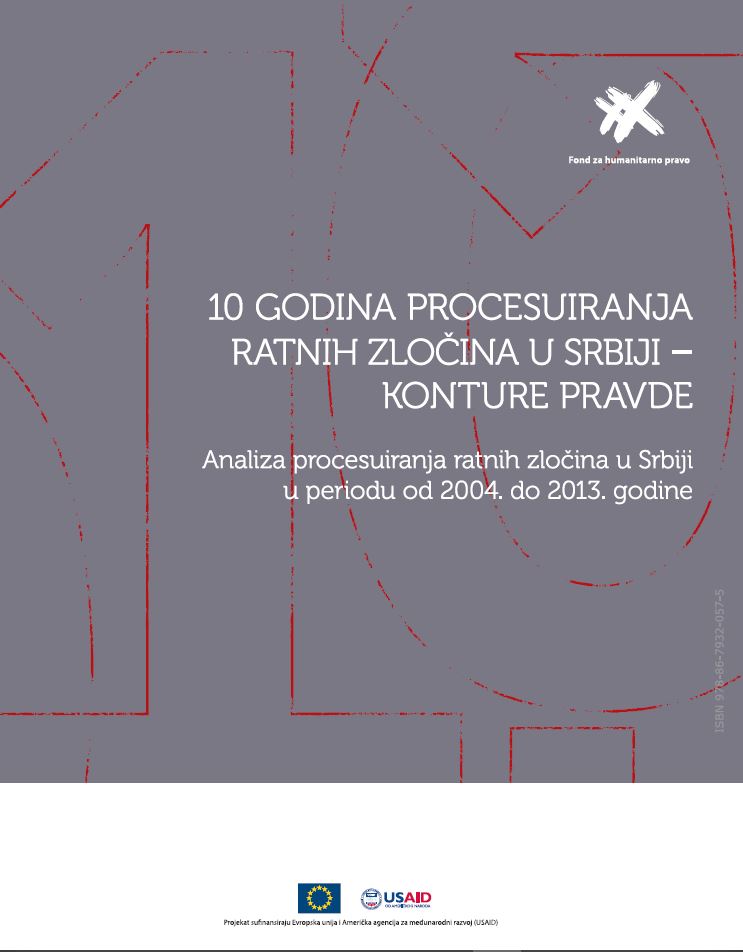
At the beginning of 2014, the first decade of work of institutions specialized in processing war crimes in Serbia ended. Judging by the scale and nature of the crimes committed in the wars in the territory of the former Yugoslavia during the 1990s, bringing those responsible for those crimes to justice has had modest results. The lack of interest of institutions in the social process of dealing with the past, as well as their superficial and weak commitment to criminal justice for the past, have made Serbia a state that, on the threshold of EU membership, is an oasis of impunity for thousands of perpetrators. // The War Crimes Chamber of the High Court in Belgrade, the War Crimes Chamber of the Belgrade Court of Appeals, the War Crimes Prosecutor's Office, the High Courts in Prokuplje, Novi Sad, Nis, Požarevac, Leskovac, Kraljevo assisted in the preparation of the Analysis. Ministry of Justice of the Republic of Croatia, Ministry of Interior of the Republic of Croatia, State Court of Bosnia and Herzegovina, State Prosecutor's Office of Bosnia and Herzegovina, Ministry of Security of Bosnia and Herzegovina, Prosecutor's Office of the International Criminal Tribunal for the Former Yugoslavia, OSCE Mission Chamber of Serbia, Documenta and others. Representatives of the War Crimes Prosecutor's Office of the Republic of Serbia, current and former judges of specialized war crimes chambers at the Higher and Appellate Courts in Belgrade, representatives of the Ministry of Interior, representatives of the Victims and Witnesses Assistance and Support Service, and defense attorneys made key contributions. , representatives of non-governmental organizations, victims, former witnesses from the Program for the Protection of Participants in Criminal Proceedings, legal experts and others. In talks with HLC representatives (Nikola Čukanović, Edmir Veljović, Milomir Matović and Sandra Orlović), they expressed their opinion on many aspects of war crimes prosecution in Serbia, problems in everyday work, good practice, mistakes, possible guidelines for improving work, etc. They all share the belief that a long-term strategy for prosecuting war crimes would contribute to improving the work of individual institutions and the overall results of this important social process.
More...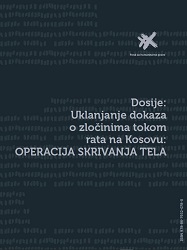
From 2001 until today, mass graves with 941 bodies of Albanians killed in Kosovo in 1999, mostly civilians who died outside the fighting, have been discovered on the territory of the Republic of Serbia. According to the UNMIK Office on Missing Persons and Forensic Medicine (KNLSM), 744 Kosovo Albanian bodies were found in Batajnica near Belgrade, at least 61 bodies in Petrovo Selo, and a mass grave with 84 bodies near Lake Perucac. Subsequently, at least 52 more bodies were discovered in the Rudnica mass grave. From the statements and testimonies of witnesses, as well as from the available documentation from that time, it is evident that the term "remediation of the terrain" was widely used within political, military and police structures to denote illegal removal of corpses and their burial mass graves, with the aim of covering up crimes.
More...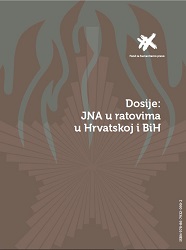
The topic of the 10th Dossier of the Humanitarian Law Center (HLC) is the role of the Yugoslav People's Army (JNA) in the wars in Croatia and Bosnia and Herzegovina (BiH) and its transformation from a Yugoslav to a Serbian army. This is the largest HLC file to date, covering the period from the late 1980s until May 1992 and deals with the preparation of the JNA and political structures of SFRY and Serbia for wars, as well as the JNA's participation in conflicts and its contribution to the realization of war goals of the leadership of the Republic of Serbia, the Republic of Serbian Krajina and the Republic of Srpska. The Dossier lists and describes in detail examples of military actions from 1991 in which the JNA committed war crimes or prepared the ground for them to be committed by Serb units with which it worked together. Evidence was presented based on documents and witness statements about indiscriminate shelling of Croatian cities (Dubrovnik, Vukovar, Zadar, Šibenik) and attacks on Croatian territories claimed by the Serbian military, during which numerous crimes were committed against Croatian and other non-Serb civilians. occupied territory ethnically cleansed. That part of the Dossier also contains information on places of detention in Croatia and Serbia under the control of the JNA, where crimes against arrested Croats were committed.
More...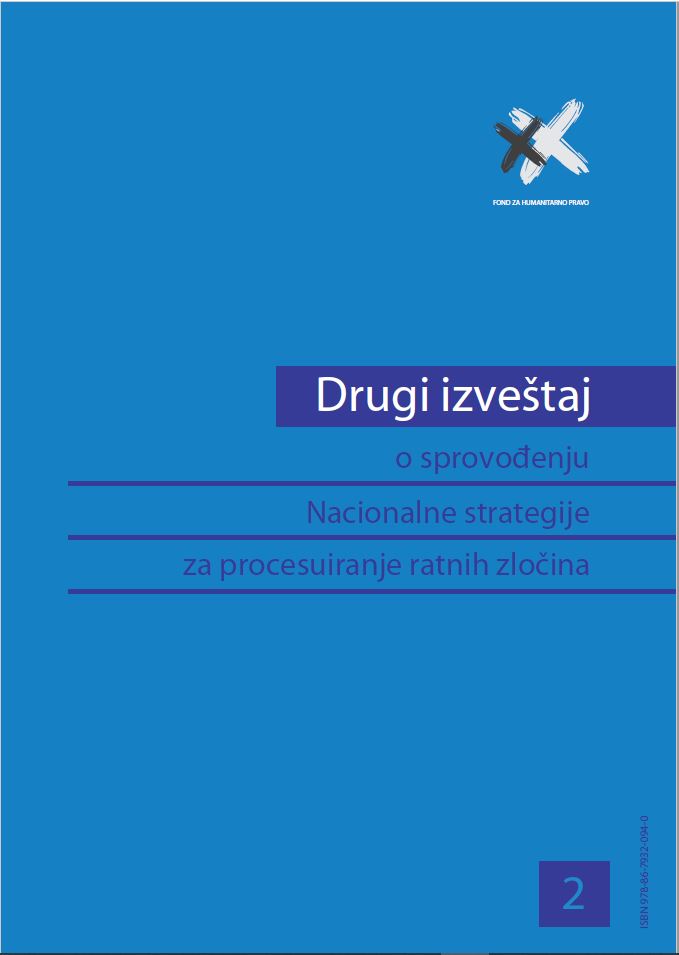
The Humanitarian Law Center (HLC) has been monitoring and analyzing war crimes trials in Serbia since the first proceedings in the Republic of Serbia in 2002. The HLC is the only organization that does this continuously and informs the domestic and international public about it. In war crimes cases, it represents victims (injured parties) through a proxy, submits criminal charges against suspects to the War Crimes Prosecutor's Office (TRZ) and provides documentation on committed war crimes. The HLC also identifies and encourages witnesses and victims to testify in war crimes cases, thus contributing to the establishment of justice for past crimes. The National Strategy for War Crimes Prosecution (hereinafter: the National Strategy), adopted by the Government of the Republic of Serbia in February 2016, is based, inter alia, on the Strategy Model developed by the HLC. The HLC reports on the implementation of the National Strategy, with the aim of offering independent research findings and conclusions on its implementation during the period of validity of the National Strategy. This is the second such report on the implementation of the National Strategy published by the HLC. The First Report on the Implementation of the National Strategy for War Crimes Prosecution, which was presented by the HLC in December 2017, is also relevant for a complete insight into the implementation of the National Strategy so far.
More...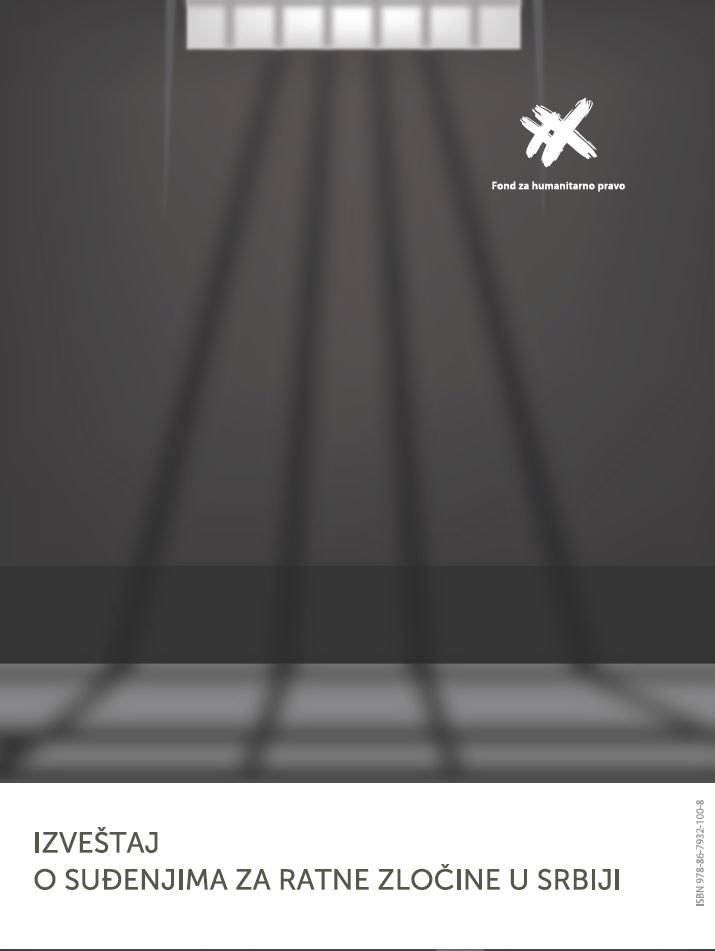
During 2017 and 2018, the HLC monitored all war crimes trials that took place on the territory of Serbia, ie a total of 20 cases before the war crimes departments of the Higher and Appellate Courts in Belgrade, as well as one case before a court of general jurisdiction. For all cases, the report provides brief overviews of the proceedings and the HLC's main findings in relation to the case, which are important to the public. A large number of war crimes proceedings processed in this report have been going on for several years, and previous HLC annual reports on trials are relevant for a complete insight into the course of proceedings and findings related to these cases. The report also includes the trial for one crime that the competent prosecutor's office of general jurisdiction did not qualify as a war crime, although all the circumstances of that case indicate that it is a war crime. The report pays key attention to the work of the War Crimes Prosecutor's Office (TRZ) and courts in public parts of court proceedings, and primarily analyzes indictments and verdicts in each individual case. The work of other bodies involved in the processing of war crimes - the War Crimes Investigation Service of the Ministry of Internal Affairs of Serbia (MUP), the Protection Unit, etc., cannot be analyzed at the level of individual cases, because there is no publicly available data.
More...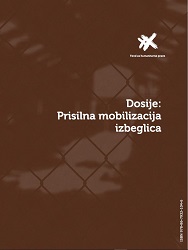
The dossier "Forced Mobilization of Refugees" is the twelfth file of the Humanitarian Law Center (HLC), which aims to provide the public with evidence of systematic and widespread violations of human rights of refugees in Serbia. The dossier is based on more than 500 statements of forcibly mobilized refugees given to HLC researchers during 1997 and 1998 and members of the families of refugees who died or disappeared after being sent to the area of armed conflict; court documents from more than 120 litigation before the courts in Serbia for damages, in which the HLC represented forcibly mobilized refugees or their families; evidence presented before the International Criminal Tribunal for the Former Yugoslavia (ICTY), as well as documents obtained by the HLC from the Serbian Ministry of the Interior under the Law on Free Access to Information of Public Importance. The Dossier also used HLC reports on the forced mobilization of refugees published in the 1990s, reports from other domestic and international human rights organizations, as well as media reports.
More...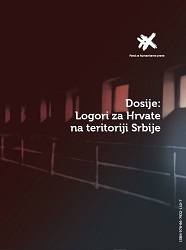
According to the research of the Humanitarian Law Center (HLC), the largest camp formed in Serbia was in the Penitentiary-Correctional Facility (KPD) Sremska Mitrovica. In addition to this camp, there were also camps in the Banat villages of Begejci and Stajićevo, then in the JNA barracks in Aleksinac and the Penitentiary in Niš. In Serbia, there were also smaller transit camps and centers where detainees stayed for several days, before being transferred to some of the larger camps. Although there were more such places, this file singled out facilities in Šid, the Military Police Training Center in Bubanj Potok and the JNA barracks in Paragovo. All camps, except Nis, which was in the zone of responsibility of the 3rd Military District (VO) of the JNA, were in the zone of responsibility of the 1st VO of the JNA. The camp was secured by members of the JNA Military Police. JNA officers were appointed to the positions of camp commanders, but the Security Directorate of the Federal Secretariat for National Defense (UB SSNO) had real control over the camps. The captured civilians and fighters spent from a couple of days to nine months in the camps. About 7,000 people passed through the camps, and about 3,500 people were kept in them for a long time.
More...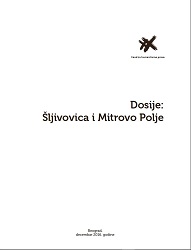
After the Republika Srpska Army (VRS) conquered Srebrenica on July 11, 1995, forcibly relocated tens of thousands of civilians from the area and killed more than 7,000 men, it set out to conquer other protected zones in eastern Bosnia and Herzegovina (BiH) - Zepe. After forcibly relocating more than 4,000 civilians from the Zepa enclave, on July 27, 1995, the VRS forced Bosniak representatives from Zepa to sign a capitulation agreement that provided for the surrender of BiH Army soldiers and other "able-bodied people" in Zepa to the VRS. Hearing stories about the crimes committed after the fall of Srebrenica, the men from Žepa fled to Žepa Mountain. During the work on this file, the HLC sent over a hundred requests for access to information of public importance, requesting additional information about the units that participated in the reception of men from Zepa and their deportation to camps, as well as about individual members of these units. In most cases, the Ministry of Defense of the Republic of Serbia (MoD) and the Ministry of the Interior refused to provide the requested information, citing their secrecy or claiming that they did not have such information. In a number of cases, the MoD and the MUP (mostly police administrations from the interior of Serbia) nevertheless provided the requested information. On the other hand, other state bodies (Institute of Forensic Medicine, Hospitals, Courts, Cemeteries) were more willing to provide the requested information to the HLC. Based on these data and other sources, the HLC determined that some of the persons who participated in the capture and abuse of Bosniaks from Žepa are still in important positions in the institutions of the Republic of Serbia.
More...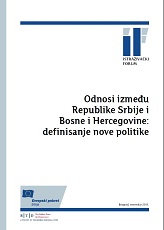
The text points to numerous problems that affect the consolidation of relations between the Republic of Serbia and Bosnia and Herzegovina. An overview of the open issues in the relations between the two states is given: from the issue of interstate demarcation, through problems related to the prosecution of war crimes and the status of pre-war property of economic entities, to the position of refugees from Bosnia and Herzegovina in Serbia. As additional problems in the relations between BiH and Serbia, the incomplete succession process of the Socialist Federal Republic of Yugoslavia and the non-functioning of the Interstate Council for Cooperation were mentioned. Relations between the Republic of Serbia and Bosnia and Herzegovina are burdened by the unbalanced relationship of the authorities in Belgrade with the Republic of Srpska, with another entity of Bosnia and Herzegovina - the Federation of Bosnia and Herzegovina, as well as with the state of Bosnia and Herzegovina. Attention was paid to the necessity of a clearer differentiation of the policies of the neighboring states - Serbia and Croatia, in relation to the earlier policy of destabilization and division of BiH, which dominated the public discourse of the former Federal Republic of Yugoslavia and the Republic of Croatia during the last decade of the 20th century. That is why the authors propose a more active and constructive role for these states with the primary goal of stabilizing the complex internal situation in Bosnia and Herzegovina. The text also contains recommendations regarding the definition of an effective public policy in relations between Serbia and Bosnia and Herzegovina.
More...
»The Word in War« brings together a wide variety of texts, all of which were written as a reaction to the war in former Yugoslavia and convey a very personal view of those events that led to a radical break with their previous lives for their authors. The authors who have written in form of literature or essays collected in this book, such as Antun Šoljan, Mirko Kovač, Ivan Rogić Nehajev, Nedžad Ibrišimović, Semezdin Mehmedinović, Irfan Horozović, Abdulah Sidran, Bora Cosić or Miljenko Jergović, are in the German-speaking world little known part. An exception is Dževad Karahasan, who is considered to be the best-known contemporary Bosnian writer and who also wrote the foreword to the anthology. (PUBLISHED IN 1995 IN FRANKFURT BY DIPA PUBLISHING HOUSE)
More...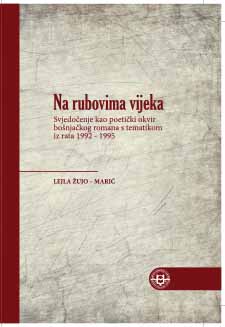
The book deals with the issue of witnessing war and remembering war trauma in a Bosniak novel with a theme from the 1992-1995 war showing the perspective of a victim/witness of a difficult historical moment such as war. Writers and their works included in this research, apart from fictional ones, carry important historical values: writers are historical witnesses and victims, and their works are resistance to all forms of war devastation. The research focus includes the following novels published in the period 1995 - 2005: Dževad Karahasan's Night Council and Sara and Serafina, Jasmine Musabegović's Women.Voices, Nedžad Ibrišimović's Book by Adem Kahriman, Zilhad Ključan's Šehid, Nermina Kurspahić's Disappearance of the Blue Riders, Irfan Horozović's Similar Man. The research is divided into three thematic parts based on the concepts of the theory of testimony and the theory of memory: the first part deals with postulating the figure of the witness in the mentioned novels, recognizing its ethical values. An important segment in shaping the figure of a moral witness is the identification in the historical experience of ancestors and the community of the dead. The second part of the book goes into the factual places where the writers and their characters move, portraying how literary testimony is recorded in places such as Vijećnica (National Library), the Sarajevo Rescue Tunnel, Ferhadija, city spaces under siege such as Sarajevo, Mostar, Banja Luka also shaping the space of exile. All spaces, except real ones, carry symbolic values. The third part of the book opens questions about the possibility of the literary text as a space of authentic witnessing, starting from the terms such as Bakhtin's polyphony, and dialogicity from which intertextuality emerges as an artistic place of articulating war trauma and historical experience. In the intertextual key, the relationship of the small story to the big ones constructed over time in different forms of culture such as religion, history and literature is questioned. All the novels portray war as a horror, calling for dialogue, humanism and preservation of memory and remembrance.
More...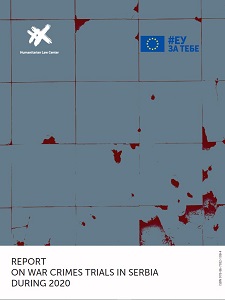
In the reporting period, the War Crimes Department of the Higher Court in Belgrade handed down first-instance judgments in five cases. The War Crimes Department of the Court of Appeal in Belgrade handed down three judgments and two rulings on appeals lodged against judgments of the Higher Court in Belgrade. In the reporting period, the OWCP issued seven indictments against seven persons. The HLC has monitored all war crimes trials conducted in the territory of Serbia in 2020, namely a total of 21 cases conducted before the War Crimes Departments of the Higher Court and/or the Court of Appeal in Belgrade. The Report provides a brief overview of the proceedings and of the HLC’s basic findings in respect of cases which are of public relevance.
More...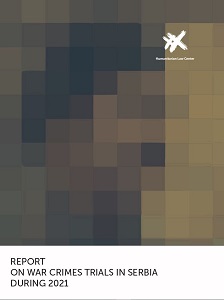
In the reporting period, the War Crimes Department of the Higher Court in Belgrade handed down first-instance judgments in five cases. It also rendered decisions terminating criminal proceedings in respect of three defendants who had died, and dismissed the indictments against two defendants who had become unfit to stand trial. The War Crimes Department of the Court of Appeal in Belgrade handed down six judgments4 and three rulings on appeals lodged against judgments of the Higher Court in Belgrade quashing the first instance judgments and remanding the cases for retrial. In the reporting period the OWCP issued seven indictments against nine persons.
More...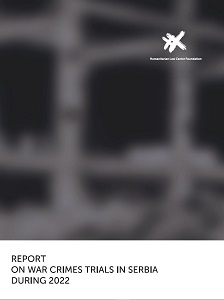
In the reporting period, the War Crimes Department of the Higher Court in Belgrade handed down first-instance judgments in five cases. It also rendered a decision terminating criminal proceedings in respect of one defendant who had died. The War Crimes Department of the Court of Appeal in Belgrade handed down two judgments. Over the reporting period, the OWCP reportedly issued 12 indictments against 19 persons, five of which were transferred from BiH. The report focuses on the work of the Office of the War Crimes Prosecutor (OWCP) and of the courts in parts of the judicial proceedings open to the public, primarily by analysing the indictments and the judgments in each particular case. An analysis of the work of other bodies involved in the prosecution of war crimes – the War Crimes Investigation Service of the Serbian Ministry of the Interior (MUP), the Witness Protection Unit and others, cannot not be undertaken in respect of the individual cases, as no information on their activities is publicly available.
More...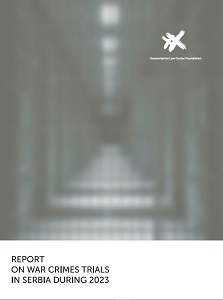
In the reporting period, the War Crimes Department of the Higher Court in Belgrade issued one first-instance verdict. The War Crimes Department of the Court of Appeal in Belgrade issued five verdicts that concluded the proceedings with final force and effect3, and two decisions that annulled the first-instance verdicts and remanded the cases for retrial. In the reporting period, the POWCP, as it states, filed three indictments against seven persons, two of which are still in the examination phase before the competent court. During 2023, one proceeding was conducted in absentia. In 2023 also, the verdict of the Court of Bosnia and Herzegovina, dating from 2014, by which Novak Đukić was sentenced to 20 years in prison, was again not executed. As from 2018, when it was determined by the expert that Đukić was not competent to stand trial, the expert opinion has been presented every 12 months, and every time the expert opinion has been the same.
More...